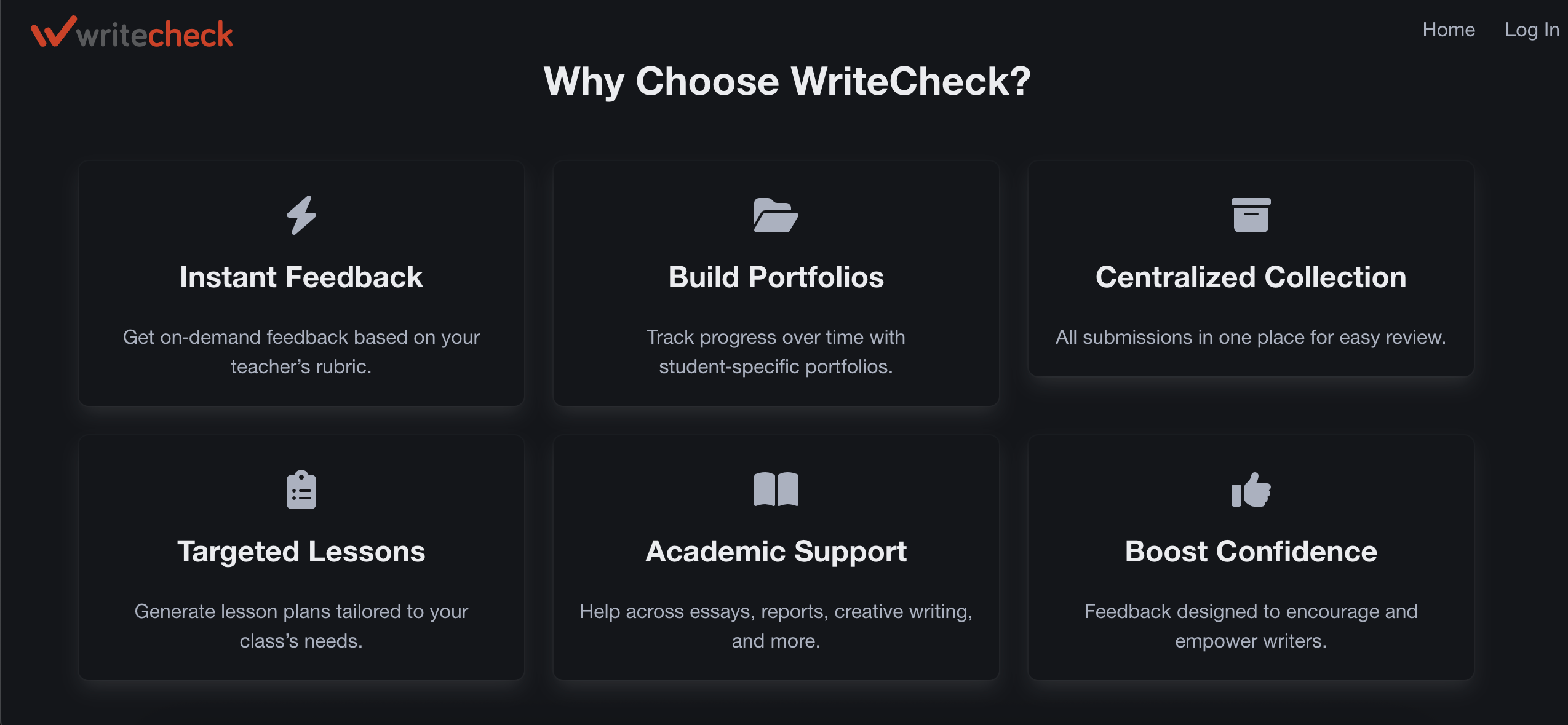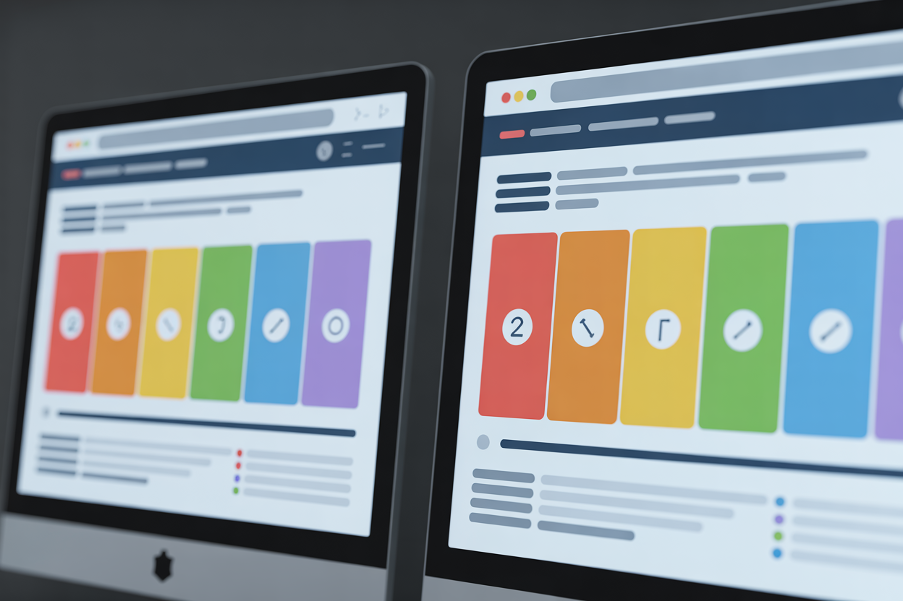AI Tools
WriteCheck vs Turnitin: 2025 Plagiarism Detection Guide
- Aug 12, 2025

Choosing the right plagiarism detection tool is crucial for maintaining academic integrity. Having spent years comparing these platforms, I’ve seen countless students and educators get confused between WriteCheck and Turnitin. While both shared a core technology, they served different purposes and audiences. This guide provides a straightforward comparison to help you choose the right plagiarism detection solution in 2025. We'll even touch on the endless "WriteCheck vs Turnitin Reddit" debates and the hunt for free options.
| Comparison | Turnitin | WriteCheck (Historical) | Humanizer AI | Scribbr | Paperpal | Originality.AI |
|---|---|---|---|---|---|---|
| Target Users | Educational institutions | Individual students | All writers | Students without institutional access | Academic writers | AI detection focus |
| Access Method | Institutional subscription | Pay-per-use | Free/subscription | Pay-per-submission | Subscription available | Credit-based/subscription |
| Price | Institutional pricing | Discontinued | Free-$2.99/month | $19.95-$39.95 per check | Varies | Varies |
| Database Size | 70B+ web pages, 1B+ papers | Limited compared to current Turnitin | Billions of pages, fewer academic sources | Full Turnitin database | Large but not as extensive | Web-focused, less academic |
| AI Detection | 98% accuracy | Not available | 98% accuracy | Limited | Limited | Strong |
| Privacy | Papers stored in repository | No repository storage | No permanent storage | Up to 12 months storage | Limited storage period | Deletable upon request |
| Best For | Institutional plagiarism prevention | Self-checking (historical) | AI content detection | One-time final checks | Writing improvement | Regular checking needs |
What Happened to WriteCheck in 2025
WriteCheck has been discontinued and merged into Turnitin's services. While it's no longer a standalone product, understanding what it was helps make sense of today's alternatives. I remember when WriteCheck was the go-to for students wanting a quick, consequence-free check before handing in a paper. It was a self-checking tool for verifying work before final submission. Turnitin now handles those needs through different service tiers and partnerships, absorbing WriteCheck's old role.
Turnitin vs WriteCheck: Core Differences

| Feature | Turnitin | WriteCheck (Historical) |
|---|---|---|
| Target Users | Educational institutions, educators | Individual students and writers |
| Access Method | Institutional subscription only | Pay-per-use for individuals |
| Report Depth | Comprehensive with source tracing, filters | Basic similarity reporting, no archiving |
| Database Policy | Papers stored in repository | Papers not added to institutional database |
| Current Status | Active, industry standard | Discontinued |
Turnitin operates primarily through institutional licenses, giving educators control over submission review. In contrast, WriteCheck was made for student self-improvement without instructor involvement. This key difference affected how papers were stored and processed. Turnitin keeps submissions in its database, while WriteCheck allowed for checking without penalty.
Features That Set Them Apart
Detection Capabilities
Turnitin offers advanced detection features that go beyond basic plagiarism checking:
- AI-generated content detection with a 98% accuracy rate for identifying content from models like ChatGPT (GPT-3.5/4).
- Comprehensive similarity analysis across academic journals, internet content, and student papers.
- Institutional analytics for tracking academic integrity patterns.
WriteCheck, on the other hand, was much simpler. It focused on basic similarity checking and grammar feedback. It lacked the advanced analytics or AI detection that Turnitin now provides, as its main purpose was student self-improvement, not institutional monitoring.
Database Coverage Comparison
Understanding database size is critical for effective plagiarism detection:
| Source Type | Turnitin | Typical Alternative Tools |
|---|---|---|
| Internet Pages | 70+ billion | Billions (limited) |
| Student Papers | 1+ billion archived | None stored |
| Academic Journals | 47,000+ journals (69M+ articles) | 1M+ articles (limited coverage) |
| Licensed Content | 800+ publishers, Crossref, CORE | Mainly public sources |
This massive database gives Turnitin superior detection capabilities, especially for academic content and comparing papers across institutions.
Turnitin's Limitations
Despite its industry leadership, Turnitin has documented limitations:
- False positive rate: Less than 1% at the document level, but up to 4% for mixed human/AI content.
- Sophisticated paraphrasing: This is the big one. I’ve seen students use advanced paraphrasing tools that completely fool the system. It's much less effective at detecting heavy rewording that keeps the original meaning.
- AI model coverage: Primarily trained on GPT-3.5/4; its effectiveness against other AI models (like Google's Gemini or Anthropic's Claude) is not as well-documented.
- Demographic bias: Shows higher false positive rates for neurodivergent students and non-native English writers.
Current Alternatives: Detailed Comparison
1. Scribbr
Powered by Turnitin's technology Scribbr is a good choice for those looking for Turnitin-quality detection without institutional access. For more details, visit the Scribbr website and follow them on Twitter @scribbr.
- Pricing: Pay-per-submission model ($19.95-$39.95 per check)
- Word limits: 7,500/50,000/50,000+ per document tiers
- Database: Full access to Turnitin's academic database
- Privacy: Documents stored up to 12 months unless deleted; not added to institutional databases
- Best for: Students wanting Turnitin-quality detection without institutional access
2. Paperpal
Paperpal provides a complete academic writing toolkit that goes beyond plagiarism checking. Check out Paperpal's website for more details.
- Features: Advanced AI writing assistance, predictive suggestions, paraphrasing, translation
- Database: Large database but not as extensive as Turnitin
- Special capabilities: "Research & Cite" features with citations from 250M+ articles
- Privacy: Limited storage period; documents not shared with third parties
- Best for: Students needing writing improvement alongside plagiarism detection
3. Quetext
Quetext offers an affordable subscription option good for frequent checks. Learn more at the Quetext website and follow them on Twitter @quetext.
- Pricing: Free plan (2,500 words/month) or $9.99/month Pro (100,000 words/month)
- Database: Billions of web pages, 20M+ books, 1M+ academic journals
- Limitations: No student paper archives; smaller academic journal coverage
- Privacy: Documents not stored in permanent databases
- Best for: Budget-conscious users needing frequent checking
4. Originality.AI
For those specifically concerned with AI content detection, Originality.AI may be the best choice. Visit Originality.AI for further information.
- Focus: Strong AI-generated content detection
- Database: Web-based content focus; not as extensive for academic sources
- Privacy: Private checking; data deletable upon request
- Best for: Detecting AI content and web-based plagiarism
Pricing Analysis

| Tool | Pay-Per-Check | Monthly Subscription | Word Limits | Best Value For |
|---|---|---|---|---|
| Humanizer AI | Free | No | Unlimited | Detecting & Humanizing |
| Scribbr | $19.95-$39.95 | No | 7,500-50,000+ | One-time final checks |
| Paperpal | Varies | Available | Varies | Writing improvement |
| Originality.AI | Credit-based | Available | Varies | AI detection |
Data Privacy Policies
Important for student users:
All reviewed alternatives state that student documents are not added to any permanent, public, or institutional database after checking. Key policies:
- Document deletion: All providers allow manual document deletion.
- Storage duration: Temporary storage only (12 months maximum for Scribbr, 90 days for some features).
- Privacy protection: No sharing with third parties or educational institutions.
- User control: Students keep full control over their documents.
Making Your Choice in 2025
Your specific situation should guide your choice of plagiarism detector.
University students: Check if your institution provides Turnitin access. If not, from my analysis, Scribbr offers the most similar function to what WriteCheck once did.
Independent researchers: Consider Paperpal for combined writing improvement and plagiarism detection.
Budget-conscious users: Quetext offers a good balance of affordability and effectiveness with unlimited rescans.
Institutions: Turnitin remains the most complete solution despite higher costs.
AI content concerns: Originality.AI or Turnitin (accessed via Scribbr) have the strongest AI detection.
A final piece of advice: remember that no plagiarism checker is perfect. Even the top dog, Turnitin, can get it wrong with false positives or miss clever paraphrasing. Use these tools as a guide, not a final verdict.
FAQs
Is there anything better than Turnitin?
For institutional use, Turnitin is still the leader in database size and features. For individual users, tools like Scribbr (which uses Turnitin's engine) and Originality.AI offer comparable power with direct access.
Is 25% on Turnitin too high?
Context matters. A 25% similarity score might be acceptable in a literature review with proper citations but concerning in an original research paper. Most institutions consider scores above 15-20% worthy of review, but the nature of matched content matters more than the percentage.
What is WriteCheck?
WriteCheck was a student-focused plagiarism checking service that used Turnitin's technology. It allowed individual users to check their work before submission without adding their papers to the institutional database. It's now discontinued and its functions have been absorbed into Turnitin's broader services.
Is a 7% Turnitin score good?
A 7% similarity score is generally considered low and acceptable in most academic contexts. However, professors still check the nature of matches, 7% that represents uncited direct quotes is problematic, while 7% from properly cited sources and common phrases is typically fine.
